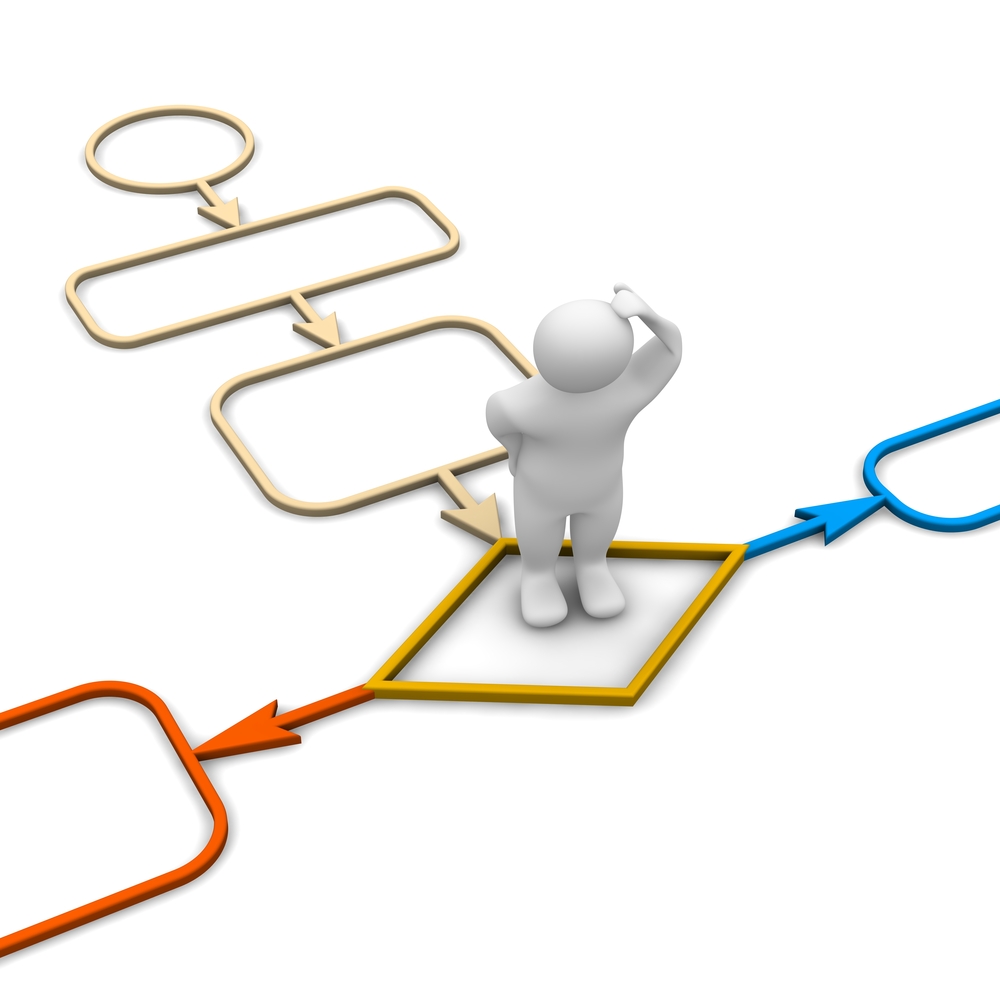Decision Management, Business Decision Management as we call it here at the BPMInstitute.org, is both an approach and a technology stack for automating and improving business decisions.
- The approach is about focusing on the high volume, operational decisions that must be made every day in your organization: the decisions in your operational processes, the decisions your call center representatives and other front-line staff make. Unlike strategic or other management decisions, these decisions are about a single interaction or transaction such as how to target a single customer, how to handle a single claim or how to price a single deal.
- The technology stack includes business rules and business rules management systems, machine learning and predictive analytic workbenches, even optimization and artificial intelligence technology. These technologies come together in decision services. These components deliver automated, continuously improved decisions to business processes and service-oriented architectures.
Business Decision Management has proven itself as a way to implement business rules and as a way to tie business rules and machine learning together to manage risk, reduce fraud and improve customer engagement. While there are other use cases for business rules and for machine learning, using them to automate, manage and improve decisions is by far the most powerful. Applying the approach generally involves three steps:
- Changing how you capture requirements so that decisions are discovered, described and understood explicitly rather than treating them simply as part of a process or system requirement.
- Using decision management technologies to build decision services as part of your systems development and implementation effort, whether agile or waterfall.
- Putting in place the processes and systems you need to track decision effectiveness so you can perform ongoing decision analysis and continuous improvement.
While the second and third steps involve applying known techniques and approaches to a new problem, specifying decision requirements requires a new approach and new techniques. There is an emerging consensus that decision modeling is the best way to specify requirements for business decision management projects. Decision modeling enables organizations to:
- Simplify process models by modeling decision-making separately using an approach suited for decisions.
- Scope, structure and manage business rules harvesting and implementation.
- Reuse knowledge from project to project by creating an increasingly detailed and accurate view of decision-making.
- Identify the potential for analytics and machine learning to improve decision-making.
- Structure the data they capture about how decisions were made so it supports continuous improvement.
The best practice for decision modeling is to use the Object Management Group’s standard, Decision Model and Notation (DMN). This standard, like the Business Process Model and Notation, does not focus on methodology but on standardizing the way decision models should be represented. This approach gives users access to a broad community and a vehicle for sharing expertise more widely and embodies the most successful top-down modeling approaches.
At the core of a DMN decision model are a few key concepts:
- The most effective way to define a decision is to specify the question that must be answered to make the decision along with the range of possible answers.
- Any decision requires information, data, to be available when it is being made. This might be data about the transaction the decision relates to, reference data or other supporting information. DMN calls this Input Data.
- Decisions can be decomposed, broken down into their component decisions. The answers from the component decisions are also information that must be input to the parent. The information required to make these sub-decisions can likewise be specified and they too can be decomposed. This allows even very complex decisions to be broken down until they can be precisely specified.
- Making a decision also requires knowledge, know-how, that explains how that decision should be made. This might be based on policies, regulations, best practices, domain expertise or data analysis and the sources of this know-how are modeled in DMN as Knowledge Sources. This knowledge sources are the basis for writing decision tables and business rules that can be executed to make a specific decision.
Decision modeling applies these basic concepts to produce decision models or decision requirement models. These models are a network of decisions, input data and knowledge sources. As a process model is to workflow or a data model is to information, a decision model is to decision-making: A clear and unambiguous way to describe decision-making by breaking down that decision-making into a set of simple concepts.

Source: DecisionsFirst™ Modeler
The example shows a decision requirements model that uses the DMN notation. The Select Marketing Offer decision (decisions are shown as rectangles) has two types of input data – Marketing Offers and Customer data (input data is shown as an oval). The solid arrows show that these two types of input data are information that is required by the decision. The decision itself has been decomposed into three sub-decisions and the use of the solid arrows here also shows that the information produced by these three decisions is also required to make the Select Marketing Offer decision. This decomposition is repeated for an extra level of detail for two of the three. Finally, two knowledge sources, Marketing Know-how and Customer Loyalty, are linked with a dashed line that shows they are authorities for specific decisions.
Decision Modeling is an increasingly important element of Business Decision Management and a critical first step in successful business rules projects.
Editors Note: This article has been updated from it’s original content. The original article can be found here:
https://www.bpminstitute.org/resources/articles/role-decision-modeling-business-decision-management

















